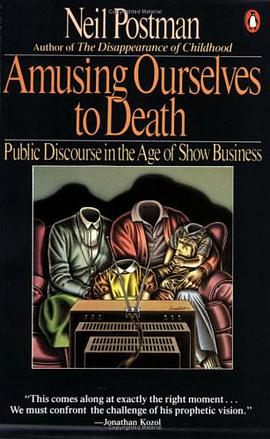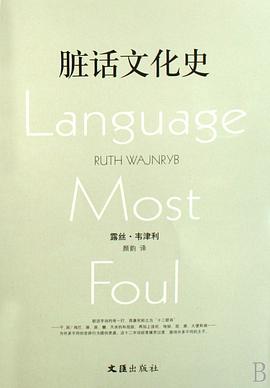文化
Amusing Ourselves to Death 豆瓣
作者:
Neil Postman
Penguin Books
1986
- 11
Originally published in 1985, Neil Postman’s groundbreaking polemic about the corrosive effects of television on our politics and public discourse has been hailed as a twenty-first-century book published in the twentieth century. Now, with television joined by more sophisticated electronic media—from the Internet to cell phones to DVDs—it has taken on even greater significance. Amusing Ourselves to Death is a prophetic look at what happens when politics, journalism, education, and even religion become subject to the demands of entertainment. It is also a blueprint for regaining controlof our media, so that they can serve our highest goals.
脏话文化史 豆瓣 Goodreads
Language Most Foul
7.6 (17 个评分)
作者:
露丝·韦津利
译者:
颜韵
文汇出版社
2008
- 2
为什么在某些国家,暗示某人跟他的骆驼有超友谊关系还不至于出麻烦,但若对人家母亲的道德水平表示鄙夷,就绝对会让你被踢出国门?一度仅限于足球场或产房的骂人话,如今已登堂入室,令若干优雅人士大为惊恐,但其他人则似乎都不堪介意。
作者路丝·韦津利以诙谐风趣的角度探究此一演变过程,解析我们语言中一些多采多姿词句的起源。韦津利不以英语划地自限,探讨“坏”字词是否也出现在其他语言,以及骂人话有哪些文化差异。
这是一本诙谐风趣、独树一格的书,探究以字词震惊、冒犯、侮辱、逗乐、夸大、发泄、传递深刻情绪的种种力量。作者鲁思·韦津利写出了历来语言学家之不敢言。对脏话研究详尽,引人入胜,笔调幽默,充满有趣的历史和好笑的轶事。
作者路丝·韦津利以诙谐风趣的角度探究此一演变过程,解析我们语言中一些多采多姿词句的起源。韦津利不以英语划地自限,探讨“坏”字词是否也出现在其他语言,以及骂人话有哪些文化差异。
这是一本诙谐风趣、独树一格的书,探究以字词震惊、冒犯、侮辱、逗乐、夸大、发泄、传递深刻情绪的种种力量。作者鲁思·韦津利写出了历来语言学家之不敢言。对脏话研究详尽,引人入胜,笔调幽默,充满有趣的历史和好笑的轶事。


